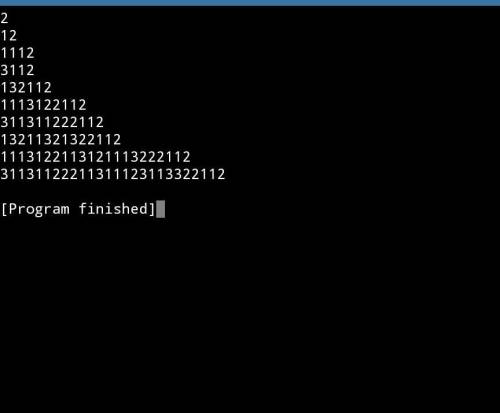
Computers and Technology, 25.02.2020 16:23 christson805
Write a generator function named count_seq that doesn't take any parameters and generates a sequence that starts like this: 2, 12, 1112, 3112, 132112, 1113122112, 311311222112, 13211321322112, ...
To get a number in the sequence, enumerate how many there are of each digit (in a row) in the previous number. For example, the first number is "one 2", which gives us the second number "12". That number is "one 1" followed by "one 2", which gives us the third number "1112". That number is "three 1" followed by "one 2", or 3112. Etc.
Your generator function won't just go up to some limit - it will keep going indefinitely. It may need to treat the first one or two values as special cases, which is fine.
Your file must be named: count_seq. py

Answers: 1


Another question on Computers and Technology

Computers and Technology, 21.06.2019 21:00
Is it ok to use a does red wine clean the inside of a computer true or false
Answers: 2

Computers and Technology, 21.06.2019 21:40
Write c function that can replace all the positive elements to 0 and negative to 1 in undefined length one-dimensional array. test your program in the main program by defining one-dimensional array of 6 elements
Answers: 1

Computers and Technology, 24.06.2019 12:00
Match the function to its purpose. fast worth 50pts.
Answers: 1

Computers and Technology, 24.06.2019 16:30
The database design steps are listed below in the incorrect order. choose the correct order number next to each step. determine the information to be stored in the database. determine the fields needed to record the data determine if there will be any repetition of data entered, and separate the fields into tables to normalize the data. create relationships to connect the tables.
Answers: 3
You know the right answer?
Write a generator function named count_seq that doesn't take any parameters and generates a sequence...
Questions
























